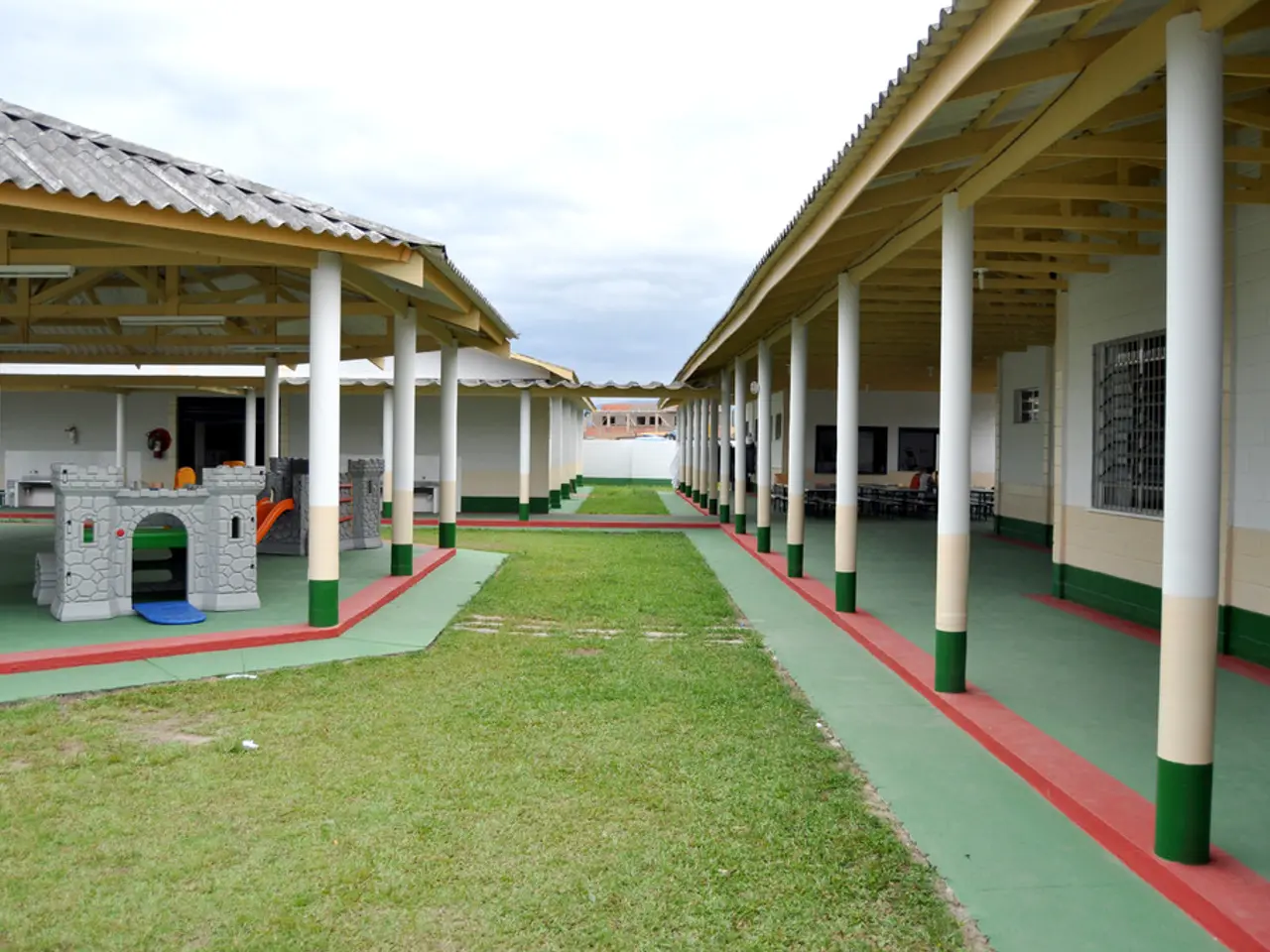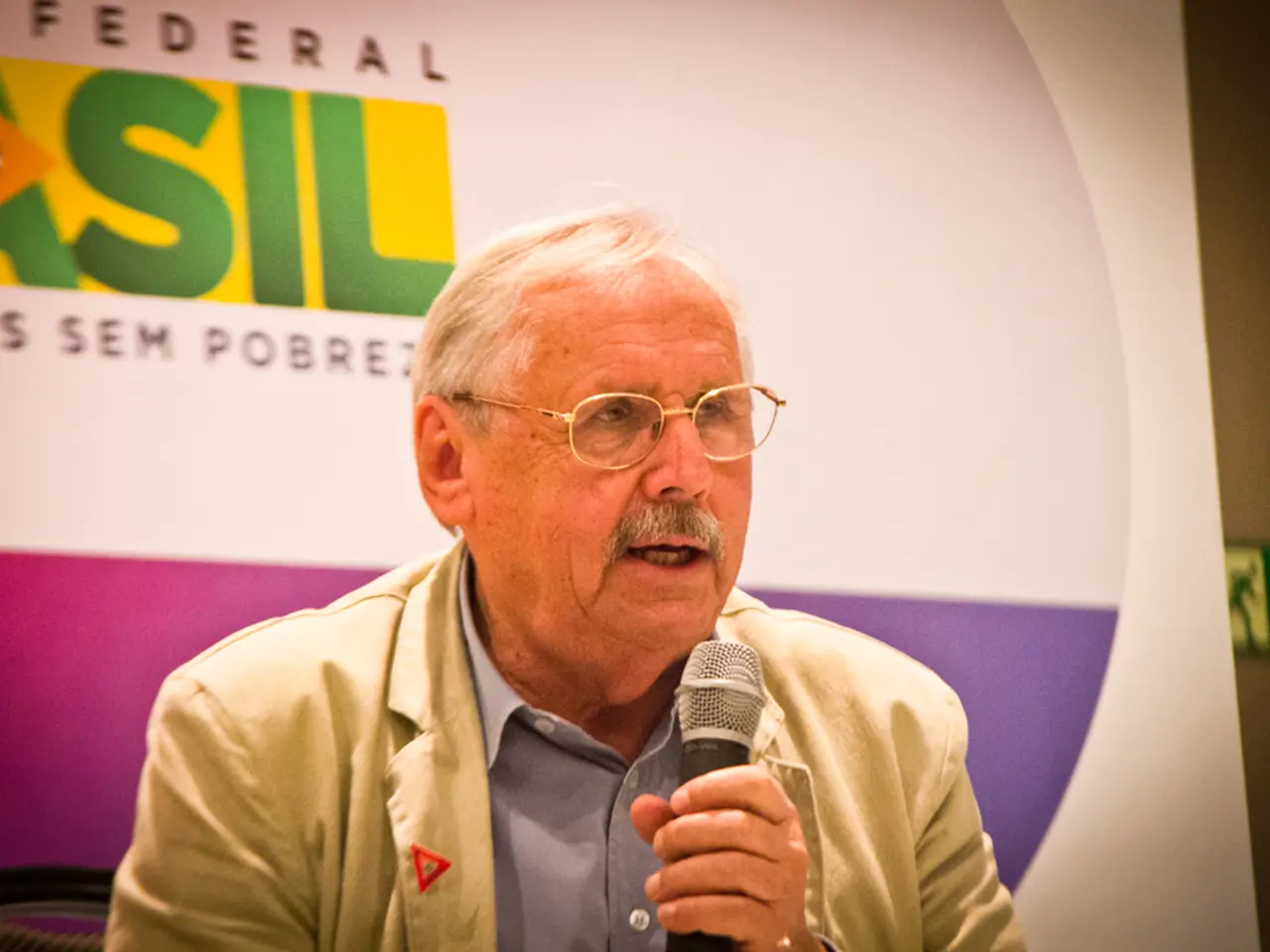Controversial Migrant Detention Facility in Thuringia: Refugee Council and Critics Cite Legal Worries and Human Rights Concerns
Imprisoning for Deportation: Refugee Advocacy Group Strongly Condemns Expulsion Plan - Criticizes Deportation: Refugee Council Voices Disapproval over Projects
The creation of a segregated migrant detention center in Thuringia's current juvenile detention center in Arnstadt is drawing intense scrutiny from the Refugee Council, who fear it might defy the law and infringe on immigrants' rights. This persistent worry stems from experiences in other federal states, asserts Frank Gockel, a representative from the Federal Association for Aiding Detainees. Moreover, a lack of legal literacy in some local courts exacerbates the issue, according to his evaluation.
The Refugee Council of Thuringia anticipates more counseling will be required for migrants apprehended in Thuringia, necessitating examination in individual cases to ensure detention conditions conform to legal requirements and that the criteria for detention are met, as stated by Juliane Kemnitz, the council's project coordinator.
Due to inadequate residential capacities, detention spots in other federal states have been utilized so far. Initially, ten detention spots will be accessible, yet the facility plans to eventually house 37 individuals. The first placements are expected to be ready for occupation by July.
Thuringia's Minister of Migration, Beate Meißner (CDU), previously indicated that the facility's intention is not to inflict inhumane treatment. Conditions in the center would differ from those experienced by people serving prison sentences.
However, doubts about the practicality of the project still exist, as shared by Gockel and Kemnitz. While regulations state that detainees should be allowed to carry cash or portable devices like mobile phones, these privileges are often denied in practice, according to Kemnitz. Her organization will monitor whether the prescribed standards will be maintained in Arnstadt.
Overall, Kemnitz questions the utility of the Thuringian detention center, particularly since foreign authorities commonly exhibit ill-informed notions about when and under what conditions detention is allowable.
The detention center project is a vital promise of Thuringia's traffic light coalition, with the estimated financial investment of approximately 2.8 million euros covering the facility's conversion.
Context
Strained accommodations for asylum seekers in Suhl, Thuringia, led to a moratorium on admissions in October 2023 due to overcrowding, with alternative housing options mostly occupied. Although present-day occupancy has dropped significantly (from 97% to 64%), the persisting housing shortage necessitated difficult decisions regarding facilities[1].
German law permits stricter grounds and longer durations for pre-removal detention, adding new rules that distinguish detention conditions from those of penal institutions[2]. Minors and families shouldn't normally be confined, and detainees must have access to legal counsel[2].
Criticisms
The detention center's creation faces criticism from the Refugee Council and other critics, who denounce the facility's potential ramifications on migrants and the broader migration policy milieu in Thuringia[3]. Politicized debates surround migration policies and detention practices in Thuringia, with critics claiming the administration aggravates social friction rather than tackling underlying issues effectively[3].
Assessment
Although the detention center addresses immediate logistical challenges, doubts remain about the center's humane treatment, adequate alternatives, and respect for legal and human rights standards. Opposition from the Refugee Council and political activists raises concerns about potential violations of rights, transparency, and democratic accountability, despite efforts to regulate detention conditions and uphold legal safeguards.[2][3]
The limited capacity and high costs of alternative accommodation options highlight the systemic issues in migration reception, which may not be resolved fully by a single facility like this one.[1]
[1] "Austauschprogramme gestattet der EU-Rat, Tages quote vom 10. Januar 2023 https://www.t-online.de/nachrichten/politik/id_836150606/."
[2] "Transitgefängnisse: so gehen die Zentren in Bayern an die Arbeit," Die Welt, 12. September 2022, https://www.welt.de/politik/deutschland/plus188622297/Transitgefaengnisse-so-gehen-die-Zentren-in-Bayern-an-die-Arbeit.html.
[3] "Austauschprogramm Thüringen: Ministrix fordert klare Auflösung, Tagesspiegel vom 18. Oktober 2022, https://www.tagesspiegel.de/politik/austauschprogramm-thueringen-ministerin-fordert-klare-auflosung/28020528.html."
The creation of the migrant detention center, planned to house up to 37 individuals, could potentially escalate political debates surrounding migration policies in Thuringia, particularly due to concerns about legal violations and human rights infringements. These worries stem from the Refugee Council, who cite inconsistencies with community policy regarding legal rights for immigrants, as well as insufficient vocational training and education opportunities for detainees. This detention center, formed within Thuringia's current juvenile detention center in Arnstadt, might further exacerbate existing issues within the broader migration policy landscape, potentially hindering efforts to address underlying concerns effectively.





